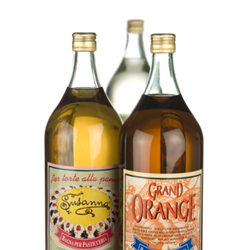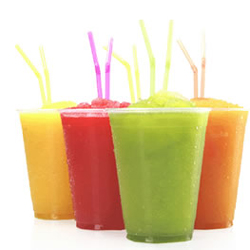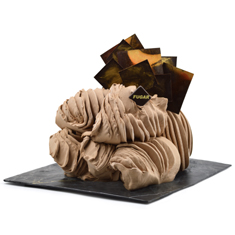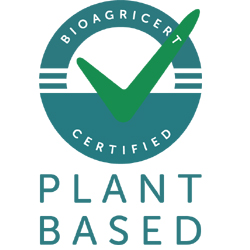Gluten

Gluten Intolerance
Gluten intolerance is an intestinal disorder that occurs when the body cannot tolerate gluten (a protein found in wheat, rye, barley and oats, even if that one is the subject of controversy and research to determine the real role).
The spread of the disease, commonly known as celiac disease or gluten intolerance, is underestimated. Celiac disease is a permanent dysfunction and can be diagnosed at any age. If the person affected consumes food containing gluten, the walls lining the small intestine start to be damaged and to suffer of reduced capacity to absorb essential nutrients such as fat, protein, carbohydrates, minerals and vitamins.
Symptoms include diarrhea, weakness due to weight loss, irritability and abdominal cramps. In children, symptoms of malnutrition may occur, for example, poor growth. Currently, the only help for celiac patients is a gluten-free diet. Diet centers and information about celiac disease organizations make available lists of gluten-free foods. Excluding this substance from the diet, the intestine is repaired and the symptoms gradually disappear.
What does FUGAR for YOU?
Have you selected a line of references which do not contain gluten. You'll find this information in the section "products" watching the article sheet.
What do YOU must do?
To ensure the absence of gluten in food is necessary to respect certain rules, mainly to avoid possible cross-contamination during the various stages of production:
- evaluate all the ingredients used during production process (including additives and flavorings) on the basis of technical sheets / declarations / supplier’s analysis;
- pay attention to ingredient’s transport conditions, if unpacked or in case of risk of contamination. The packaging of the raw material must be intact, undamaged and properly labeled;
- produce and work gluten-free food in different space and /or times from those used for foods containing gluten;
- in case of common production lines pay special attention to cleaning and sanitizing process to remove any residue;
- maintain separate and secure areas identified to be dedicated to storage of products / packaging material with and without gluten (containers / cabinets / shelves / platforms ..);
- educate and train all staff, involving them in the possible problems related to gluten;
- supplement its self control following HACCP principles, with managing procedures and risk control "gluten" (ex. Evaluate quantitative analysis about gluten);
- display “ingredient panels” completes and clears, in order to inform the consumers (especially about contained “allergens”).



















